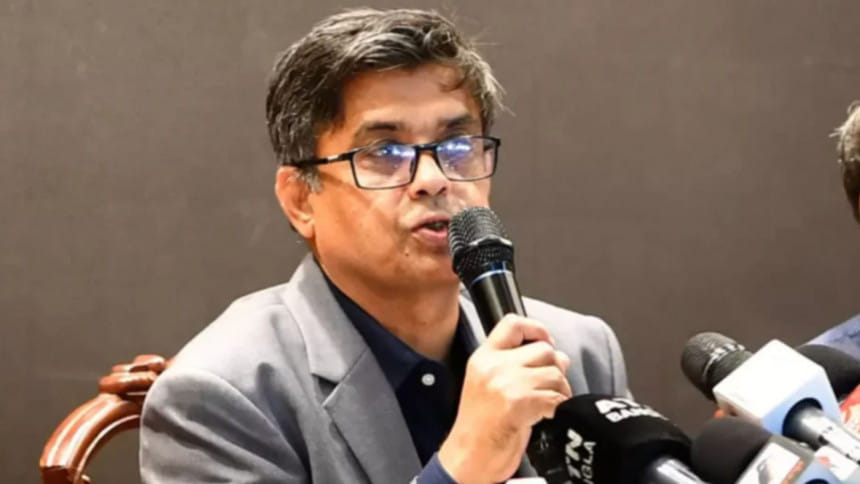Many media acted as mouthpieces for authorities
Bangladesh experienced “terrible journalism” during the July uprising, where several media outlets labelled student protesters as “terrorists and militants”, indirectly legitimising their killings, said Chief Adviser’s Press Secretary Shafiqul Alam yesterday.
Speaking at a discussion titled “Fascist Narratives in Media: Revisiting July 1-36”, organised by the platform “We Want Fascism-Free Media”, he commended journalists who upheld ethical standards despite immense pressure from the government.
“During the July movement, many media outlets, undeterred by threats, maintained professional journalism. However, there were also outlets that acted as mouthpieces for the authorities,” he said.
Alam highlighted that this issue extends beyond just a single month, as a group of journalists has been manipulating narratives surrounding significant events in the country since 2009, thus solidifying authoritarianism, stripping citizens of their rights, and justifying violence.
He emphasised the importance of documenting the role of each journalist and media outlet, stating that the media’s involvement in significant events over the past 15 years will be recorded and should be analysed and researched.
However, he insisted that such initiatives must be led by independent, private organisations to ensure transparency and accountability.
Jonal Abedin Shishir, convener of “We Want Fascism-Free Media,” delivered the welcome speech, condemning political manipulation in the media.
He emphasised the need for media independence to preserve democracy.
Plabon Tariq, spokesperson for the organisation, said they had reviewed over 100 news reports. He presented ten editorials published in Kaler Kantho, Janakantha, and Bhorer Kagoj, labelling these narratives as examples of fascism.
One instance highlighted how “Kaler Kantho,” without evidence, accused the student organisations Shibir and Chhatra Dal of being responsible for the death of Mir Mughdho, following a minister’s statement.
Another case discussed involved a “Janakantha” report that incorrectly claimed the students’ protests lost public support after being labelled “razakars” by then Prime Minister Sheikh Hasina, he said.
The discussion included six proposals to enhance media freedom and security, such as ensuring a fear-free working environment for journalists, abolishing government censorship, and establishing a professional code of conduct.
They called for an independent constitutional commission to oversee media activities free from government interference, ensuring transparency in media ownership and funding sources, and amending cybersecurity laws to prevent misuse against journalists.
Tariq said the purpose of their research was not to undermine any media outlet or journalist.
Dhaka Union of Journalists (DUJ) President Shahidul Islam said some media outlets are still attempting to create instability in the country, asserting.
He urged the public to boycott journalists who collaborate with the government.
Raihan Uddin, spokesperson for Nirapad Bangladesh Chai, commended The Daily Star for recently admitting mistakes in its reporting, emphasising the need for media to operate within a system of checks and balances.
Abu Sadik Kayem, publications secretary of Islami Chhatra Shibir, expressed concern over how major events have been distorted over the past 16 years, stating that there have been attempts to label movements and politicise initial attacks.
He also said journalists have played a crucial role at the grassroots level.
Other speakers, such as Abbas Uddin Noyon, Mahbub Alam, Mohiuddin Mahi, echoed concerns about media bias, censorship, and political pressure.
LondonGBDESK//



Comments are closed.